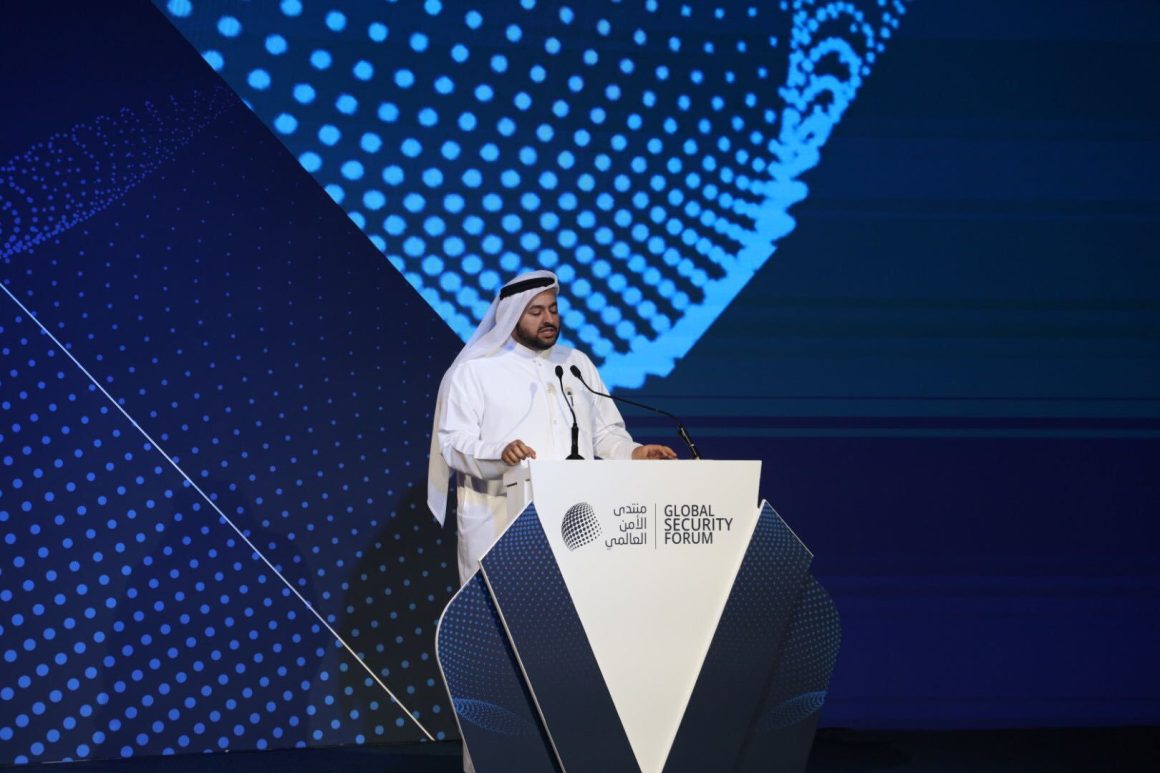The official highlighted Qatar’s role in facilitating peaceful dialogue to and further learning how to incorporate such measures into its own laws and policies.
Qatar’s Assistant Foreign Minister of Regional Affairs Dr. Mohammed Al-Khulaifi opened the conference on the second day of the Global Security Forum, by highlighting the importance of mediation to achieve peace and prosperity.
He explained that mediation serves as a “non-binding, flexible, voluntary, and confidential process” in which the third neutral party actively assesses the settlement of the dispute and works on resolving the issue through peaceful means.
The process, he claims, is the second most used diplomatic peaceful means used for the settlement, after dialogue negotiation.
“Undoubtedly a key feature in the mediation is the mediator,” which he stated must be objective, independent and non-emotional throughout the discussions. For the dispute to be solved, the mediator must present equally between both parties.
“Mediation can, of course, invite representatives of states or non-government organisations by intergovernmental organisations or officials such as the Security Secretary General of the United Nations or expected and distinguished persons,” he said in his debrief.
“The duty of the mediator is to clear the position of each party, improve the dynamics and make sure that the resolution of the disputes can be smooth and effective.”
The proactive involvement of the mediator can substantively contribute to the success of the mediation, he added.
“The issue of interstate disputes offers several advantages to the parties: flexibility necessity, consent, the opportunity of the parties you have control over the process, understand the conflict better and keep the communication, and on top of that, administrating the importance of associating the work with the development of the concerned country,” the official told the crowd at the Global Security Forum in Doha.
Qatar’s mediation roles
In his speech, the official highlighted Qatar’s role in allowing for peaceful dialogue to take place and further learning how to incorporate such measures in its own laws and policies.
“Qatar has been recognised globally as an international litigator in a variety of states and has high cooperation with regional and international expectancies,” Al-Khulaifi added.
“It’s also worth noting that Qatar itself has benefited from the mediation it participated in. Qatar’s foreign policy relies on strong bilateral and multilateral alliances and finding solutions through complex dialogue and mediation with respecting the sovereign rights of all countries.”
Since 2000, the Gulf nation has been involved in several mediation efforts, both regionally and internationally, that have had a significant impact on ‘world peace’.
One example, the official stated, would be Yemen.
“Doha mitigated and contributed to the conclusion of a truce in 2008 and 2010 between the Yemeni government and Houthi rebels in order to prevent further killings of the Yemenis,” he said.
In 2009, Qatar played a significant role in mediating peace talks between the Sudanese government and rebel groups in Darfur. The peace agreement was signed in Doha in 2011, but was not fully implemented.
In 2008, Qatar mediated negotiations between the Lebanese government and Hezbollah to end the political crisis that threatened to plunge the country into civil war. The agreement reached in Doha allowed for the formation of a national unity government after years of political crisis, Al-Khulaifi said.
The country also played a key role in mediating a ceasefire between Israel and Hamas in November 2012. The agreement ended eight days of fighting that had claimed the lives of over 160 Palestinians.
In 2013, Qatar hosted negotiations between the Afghan government and Taliban representatives to find a peaceful solution to the ongoing conflict in the country. The talks did not lead to a breakthrough, but did set the stage for future negotiations.
Beyond regional mediations, the country has also served as a mediator between the United States and the Taliban, which lead to a breakthrough agreement.
The Gulf state further served as a facilitator between Iran and other countries.
“Qatar facilitated in-direct talks that happened between representatives of Tehran and Washington.”
USA-Qatar relations, mediation efforts
Qatar has played a key role in mediating between several countries to resolve conflict and ensure peace and stability in the region, US Ambassador to Qatar Timmy T. Davis said in a panel during the Global Security Forum.
When asked about the importance of strong ties with the Gulf nation, the official stated that the Gulf state has provided a way to negotiate with Iran and the Taliban in previous years, which helped reach several agreements that would “not have been achieved without the Qataris help.”
“Qatar has a strong relationship with Iran, even stronger than our [US] relationship or any other relationship, which is something that definitely sets it apart and helps us with dialogue,” he added.
Qatar has played a mediating role in the US-Iran relationship through various channels. In 2019, Qatar facilitated negotiations between the US and the Taliban to end the long-standing war in Afghanistan. This effort also involved Iran, which has a stake in the conflict. Qatar has further maintained diplomatic ties with Iran and has acted as a mediator in regional conflicts, such as the war in Yemen.
In early 2020, tensions between the US and Iran escalated, leading to fears of a wider conflict in the region. Qatar stepped in to urge both sides to exercise restraint and engage in dialogue. Qatar’s amir, Sheikh Tamim bin Hamad Al Thani, made an official visit to Iran to meet with then President Hassan Rouhani and Supreme Leader Ayatollah Ali Khamenei, where he called for a de-escalation of tensions.
Qatar has also hosted several rounds of talks between the US and Iran, serving as a neutral ground for discussions. These talks have focused on regional security and the nuclear deal, which the US withdrew from in 2018.
The official also spoke about the Gulf nation’s efforts to improve its laws and regulations.
“It goes beyond the World Cup,” the official explained, saying that the country is setting its eye on more improvements as it works towards its 2030 vision.
